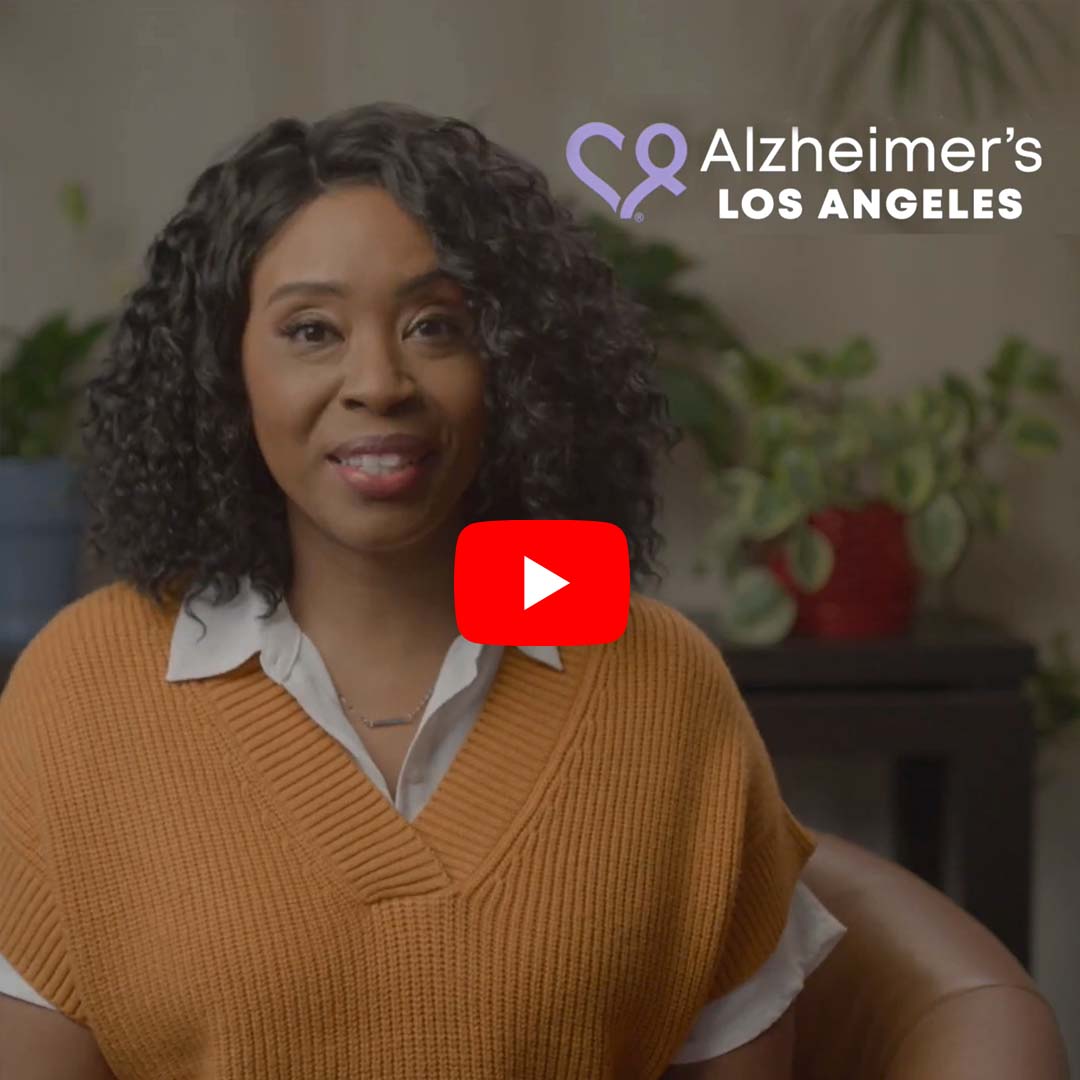Provide families support during the holidays 2021

Alzheimer’s Los Angeles – How You Can Help
At Alzheimer’s Los Angeles, we help families prepare for the holiday season – a joyous and busy time when so many gather, share stories, and make new memories. For many families who are living with Alzheimer’s or another dementia, the holiday season can pose special challenges and bring added stress. Families face issues such as challenging behaviors, confusion, feeling stressed and overwhelmed, and more.
Your support enables Alzheimer’s LA to provide families care counseling services with a dementia specialist and introduce them to a community that offers invaluable support during a difficult journey. We also have resources like our Holiday Tips for Caregivers (below) to help family caregivers balance the holidays while taking care of themselves.
Because of your support, we have been a trusted resource for 40 years for local families caring for a loved one facing Alzheimer’s or another dementia. Please join us in bringing hope to families right here in our own community. Your gift today ensures that thousands of families in LA County have invaluable support during this holiday season.
Visit our Ways to Give page and make a difference today.

Your donation stays 100% local.
Alzheimer’s LA remains committed to honesty, efficiency, and integrity.
Holiday Tips for Caregivers 2021
As a caregiver, you might have mixed feelings about the holidays. There are added concerns now due to COVID-19. Happy memories of the past may conflict with worry about the extra demands made on your time and energy. Below are ways to balance the holidays while taking care of yourself.
Understand the Emotions
- Is there a sense of loss for the way things used to be?
- Are you experiencing guilt for not doing enough?
- Is there denial about accepting change?
- Are there increased fears and anxieties due to COVID-19?
Prepare the Person with Dementia
- Show photos & talk about visiting family members
- Visit the doctor to address any health issues
- Familiarize your loved one with others who might help care during this time
- Practice using protective steps such as wearing face masks, using hand sanitizer, etc.
Prepare the Caregiver
- Exercise, eat well and take care of yourself
- Assign chores and activities to others
- Plan for breaks and down time
- Plan time to spend with other family members
- Give yourself permission to take some time off from caregiving
- It is okay to say no – you don’t have to accept all invitations to dinner or gatherings
Prepare Other Family Members
- Educate family members about limitations
- Provide information about communication tips
- Share changes in behaviors and how to respond
- Identify safety measures required during COVID-19 such as mask wearing, no-contact methods of socializing, using hand sanitizer, etc.
Preparing the Home
- Keep an area that is calm and quiet for relaxing
- Keep an area that is kept monitored for COVID-19 safety measures such as no entry without washing hands, wearing masks, keeping distant.
- Avoid confusing items like artificial food and edible decorations
- Keep decorations simple – avoid flashing lights and decorations that make noise
- Run through a safety checklist – remove throw rugs, clutter, cords on the floor
- Stock up on supplies such as face masks, hand sanitizer, disinfectant, tissue, thermometers, etc.
- Establish protocols for safety during visits such as disinfecting common surfaces, washing hands when entering, etc.
Adapt holiday traditions
- Change family gatherings to a time that is better for you and your loved one
- Limit the number of people at gatherings
- Find a quiet and calming location
- Set an end time for gatherings
- Plan for activities that everyone will enjoy
Gift Suggestions (Share your wish list with family and friends):
- Bathing – waterproof radio, shower chair, hand-held showerhead, night light
- Dressing – clothing that is easy to put on/off, slip on shoes, non-skid socks, slippers
- Photo albums, picture books
- Gift certificates and Donations to a favorite charity
- Advise against brain games, electronics, pets, breakable items
Planning Activities
- Schedule visiting times for family and friends
- Schedule naps and quiet time
- Identify activities they can do with other family members, such as walks, making cookies, wrapping packages, setting the table
- Identify simple repetitive activities to maintain calmness, such as folding napkins, cracking nuts
- Explore ways to engage with virtual activities such as music concerts, visiting parks, playing games
Holiday at a Facility
- Contact the facility to learn what COVID-19 safety protocols they have for family visits
- Join the facility’s festivities
- Minimize visitor traffic to 2-3 people at a time
- Bring or plan activities such as unwrapping gifts, strolling the facility, sharing old family memories
- Plan for virtual visits with the staff so that they provide technical assistance
Travel Wisely
- Consider your loved one’s abilities and limitations when planning travel
- Never leave your loved one alone
- Avoid peak travel hours and allow extra time
- Stick to daily routines as much as possible
- Have identification on your loved one such as ID bracelet, clothing labels, tracking devices
Adapted from National Institute on Health and USF Health Byrd Alzheimer’s Institute
